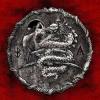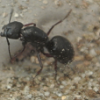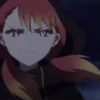In my chicken breeding operation there are 3 stages of feeding subsequent to incubation:
1) Hatchling down loss. Feeding commercial chick starter.
2) Chick mortality prevention. Feeding commercial chicken feed.
3) Free range. Feeding on harvest leavings in the surrounding soybean and corn fields.
During chick infant mortality prevention the chicks are housed in an above-ground swimming pool into which I dump grass clippings that self-compost. At first I was thinking of vermiculture as a way of converting the nitrogen-rich grass clippings to protein to supplement their diet. However, getting that to happen is, according to vermiculture folks, problematic -- some parts of the pile are a messy muck and other parts are taken over by a dried out white dusty mold (this matches my experience). Moreover these piles of grass clippings tend to be colonized by ants. This would be great for my chicks as they would, I'm sure, love to peck around and eat ants. The problem is since they're in an above-ground pool which, itself, is housed inside a garage, a flightless queen is very unlikely to make her way into the pool.
What I'd like to do is provide enough depth of hot composted grass clippings that one or more queens could colonize it and, if possible, have the next generation colonize the pool as well so I don't have to keep providing queens (and the protected environment from the chicks while the queen grows out her colony).
Has anyone tried formiculture in hot composted grass clippings?


















